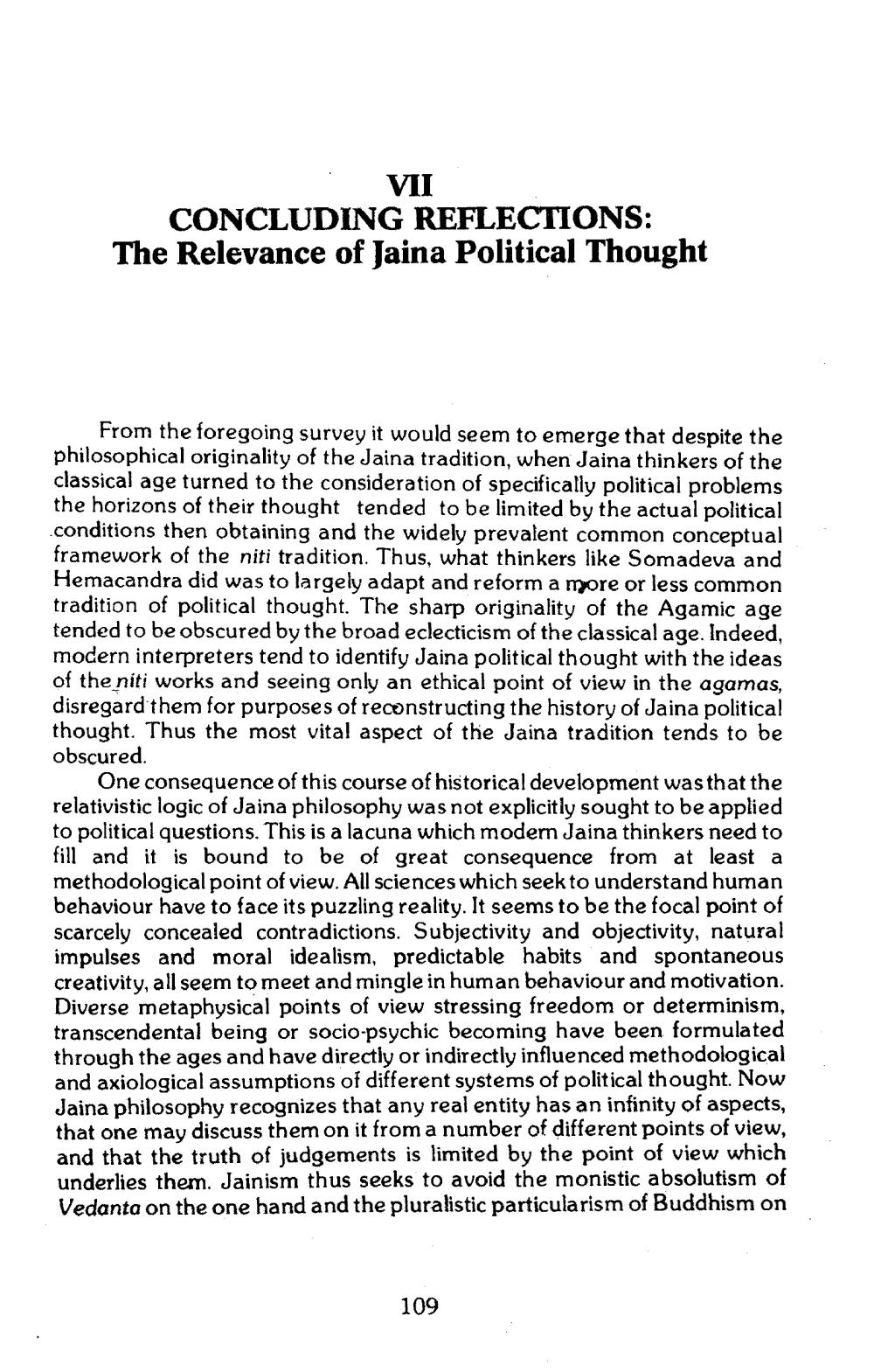________________
VII CONCLUDING REFLECTIONS: The Relevance of Jaina Political Thought
From the foregoing survey it would seem to emerge that despite the philosophical originality of the Jaina tradition, when Jaina thinkers of the classical age turned to the consideration of specifically political problems the horizons of their thought tended to be limited by the actual political conditions then obtaining and the widely prevalent common conceptual framework of the niti tradition. Thus, what thinkers like Somadeva and Hemacandra did was to largely adapt and reform a more or less common tradition of political thought. The sharp originality of the Agamic age tended to be obscured by the broad eclecticism of the classical age. Indeed, modern interpreters tend to identify Jaina political thought with the ideas of the niti works and seeing only an ethical point of view in the agamas, disregard them tor purposes ot reconstructing the history of Jaina political thought. Thus the most vital aspect of the Jaina tradition tends to be obscured.
One consequence of this course of historical development was that the relativistic logic of Jaina philosophy was not explicitly sought to be applied to political questions. This is a lacuna which modern Jaina thinkers need to fill and it is bound to be of great consequence from at least a methodological point of view. All sciences which seek to understand human behaviour have to face its puzzling reality. It seems to be the focal point of scarcely concealed contradictions. Subjectivity and objectivity, natural impulses and moral idealism, predictable habits and spontaneous creativity, all seem to meet and mingle in human behaviour and motivation. Diverse metaphysical points of view stressing freedom or determinism, transcendental being or socio-psychic becoming have been formulated through the ages and have directly or indirectly influenced methodological and axiological assumptions of different systems of political thought. Now Jaina philosophy recognizes that any real entity has an infinity of aspects, that one may discuss them on it from a number of different points of view, and that the truth of judgements is limited by the point of view which underlies them. Jainism thus seeks to avoid the monistic absolutism of Vedanta on the one hand and the pluralistic particularism of Buddhism on
109




